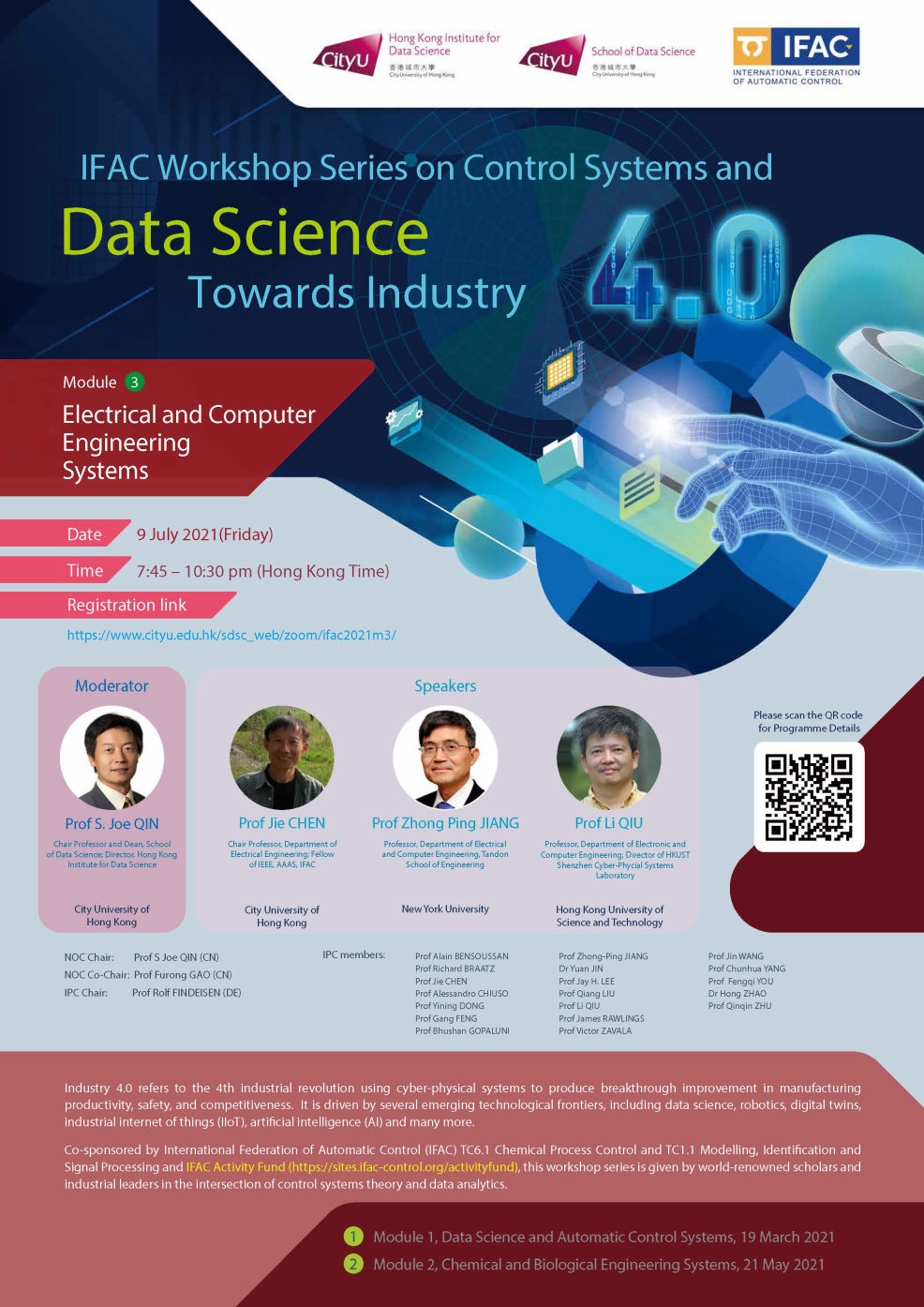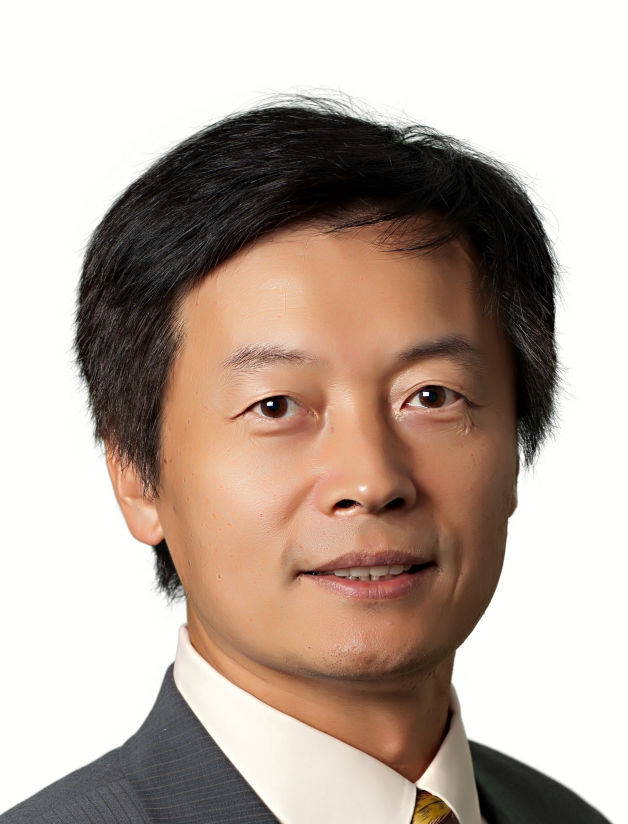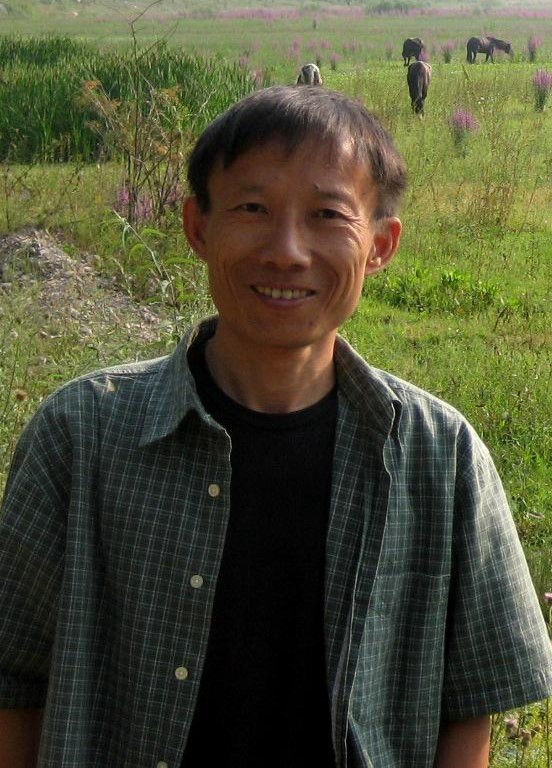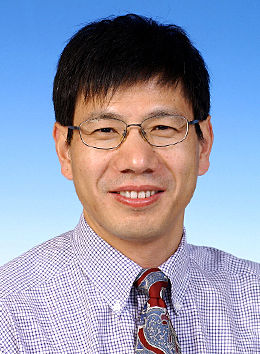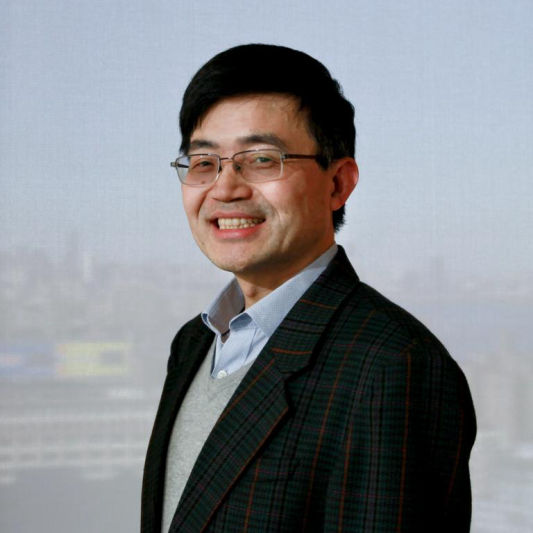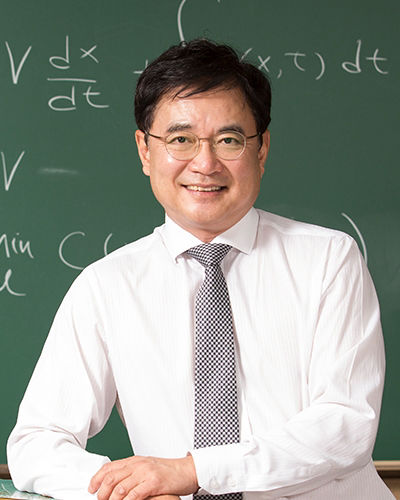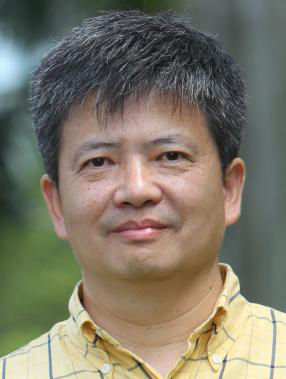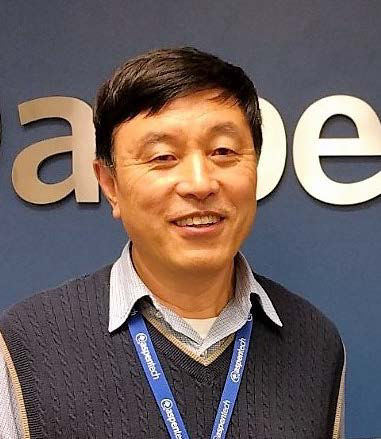IFAC Workshop Series
Workshop Series on Control Systems and Data Science Towards Industry 4.0
Organised by
Hong Kong Institute for Data Science, City University of Hong Kong,
School of Data Science, City University of Hong Kong
Co-sponsored by
International Federation of Automatic Control
The workshop series is supported by IFAC Activity Fund and Technical Committees of IFAC, namely TC 6.1 Chemical Process Control (chaired by Prof Rolf Findeisen) and TC 1.1 Modelling, Identification and Signal Processing (chaired by Prof Alessandro Chiuso)
NOC Chair: Prof S Joe QIN (CN)
NOC Co-Chair: Prof Furong GAO (CN)
IPC Chair: Prof Rolf FINDEISEN (DE)
IPC members:
Prof Alain BENSOUSSAN
Prof Richard BRAATZ
Prof Jie CHEN
Prof Alessandro CHIUSO
Prof Yining DONG
Prof Gang FENG
Prof Bhushan GOPALUNI
Prof Zhong-Ping JIANG
Dr Yuan JIN
Prof Jay H. LEE
Prof Qiang LIU
Prof Li QIU
Prof James RAWLINGS
Prof Victor ZAVALA
Prof Jin WANG
Prof Chunhua YANG
Prof Fengqi YOU
Dr Hong ZHAO
Prof Qinqin ZHU
